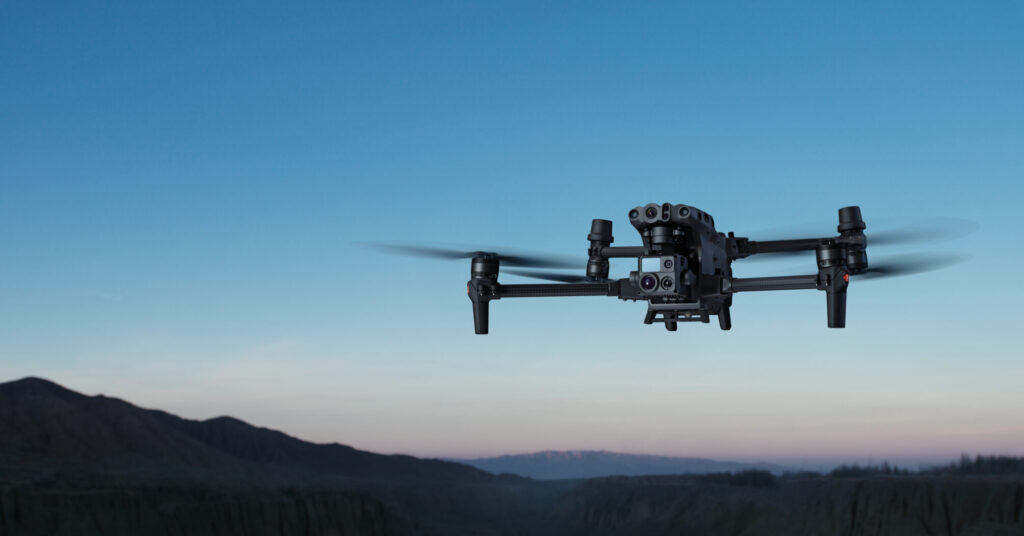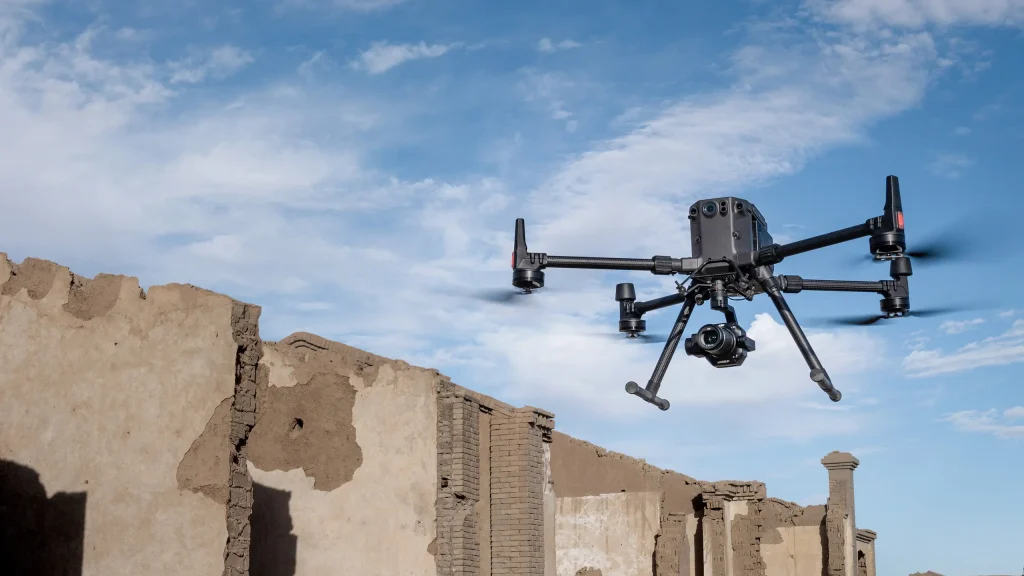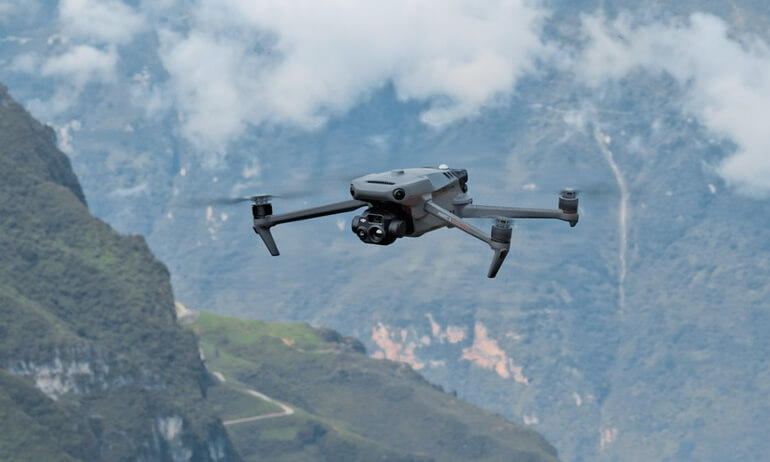Introduction
Drone inspections are being carried out in nearly every industry that requires visual inspection as part of its maintenance operations. Drone inspections save inspectors from putting themselves in dangerous situations by collecting visual data on the status of an asset.
Inspection drones are revolutionizing manual inspection processes, allowing inspectors to collect inspection data faster while eliminating slower manual stages that put them in risk.
Manually examining a cell tower, for example, may necessitate climbing several floors in the air on a tower to get a close look at a guy-wire. In addition, manually inspecting an industrial boiler may necessitate climbing fifty feet or more into the air on scaffolding.
Visual Inspection
When it comes to the visual inspection mechanism, standard and customary procedures no longer cover the entire scope. This is due to the fact that visual inspection demands more than what conventional methods can provide. To meet these objectives, the visual inspection mechanism has relied on technology and creativity. In essence, the deployment of drone technology in this job line has assisted in overcoming various inspection obstacles and inadequacies. UAVs have therefore been used in the thriving industries of mine inspection, utility inspection, tower inspection, bridge inspection, and much more.
Visual inspection necessitates a keen and alert eye that slices through the thing like a laser in search of details. There are several limitations with the human sight. Adopting innovative methods, such as drones and UAVs, is the most efficient way to obtain quick and precise observational results. Unmanned Aerial Vehicles (UAVs) are becoming increasingly popular due to their diversified operations and data collecting capabilities. Investigating the value of observation and data collection in the visual inspection space helps us realise the true significance of UAVs in the same space. Drones’ ability to manoeuvre, move quickly, and hover allows them to acquire exact data on the object of interest while completely inspecting it for details. As a result, drones assist save time, improve performance, lower resource costs, and increase efficiency.
Visual Inspection in Various Industries
Drone technology was born from the idea of doing tasks conveniently from an aerial perspective. The use of unmanned aerial vehicles (UAVs) in visual inspection highlights the numerous industrial applications associated with them. At this point, understanding each industry’s layered complexity is critical for the smooth use of drones to increase a certain industry’s business and growth.
Precision Agriculture
Agriculture is, without a doubt, the most prominent industry in terms of labour employability and worker population. With the use of drones for aerial inspection, the time-consuming and monotonous operation of examining farmlands and crops can be made more convenient. Multispectral sensors and high-resolution cameras aid in the collection of data, which is then actively used for 3D mapping.
Construction
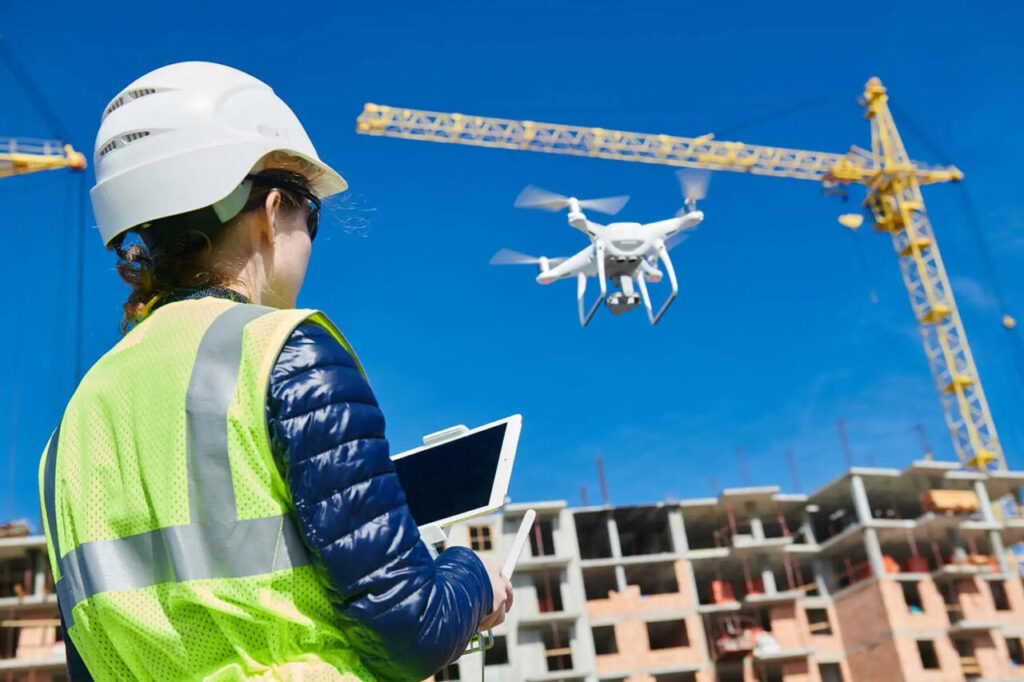
The construction sector is rapidly evolving towards modern inspection technology. Drone inspections have aided in the laborious task of monitoring major construction projects. Bridge inspections, roadway inspections, and other tasks can be completed without interfering with other aspects of the construction business. Because worker safety is a major concern, the use of drones reduces harmful occurrences when performing inspection services.
Infrastructure and Utilities

Because of the versatility of UAVs, aerial inspection of public infrastructure and utilities is increasing. The use of drones for wind turbine inspection, tower inspection, sewage water treatment plant inspection, and much more is beneficial in conjunction with mapping and surveying. Visual inspection using drones has considerably aided the infrastructure and utility industries in bringing about many adjustments and progressive advancements.
Mining

The value of inspection in mining is undoubtedly the most important part of the sector. The sluggish and monotonous nature of the visual inspection, massive mines, and storage tanks, on the other hand, may prove costly and ineffectual. Drones have thus been used for aerial inspection as a means of development. UAVs’ clever sensors and fast mobility enable them to collect data more quickly and precisely. This saves mining businesses time and money while also eliminating the safety risks caused by human inspection.
Oil and Gas
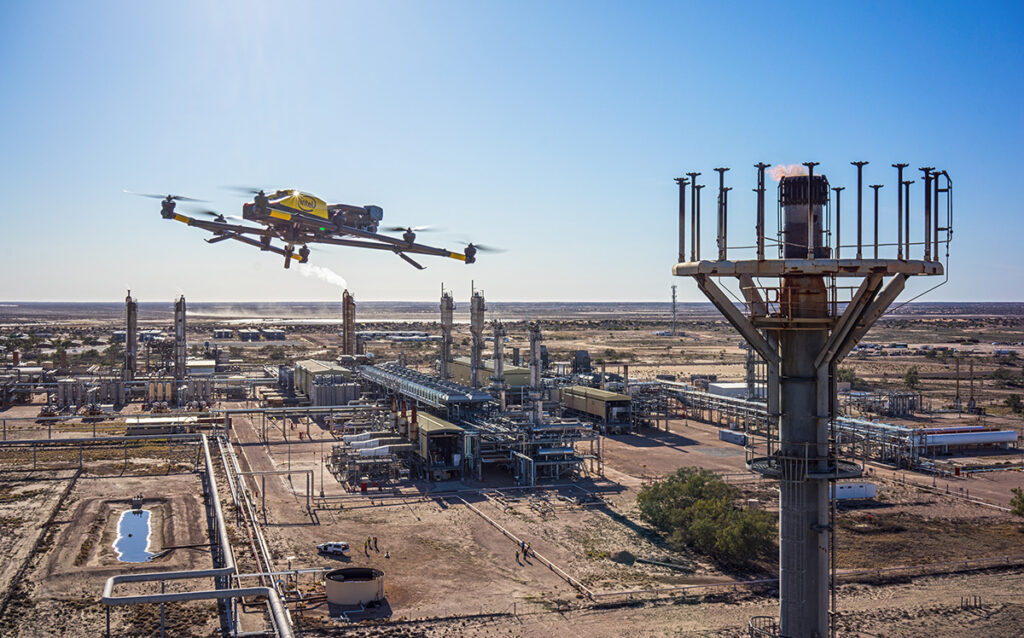
The oil and gas industry’s mounting issues are well known. To counteract these compounding disadvantages, drones, UAVs, and quadcopters have been introduced. Drones’ agility helps with oil and gas inspection, pipeline monitoring, scanning oil rigs and mines, and mapping the acquired data for future use. In essence, the major characteristics and operational measures given and delivered by UAVs push the oil and gas industry’s efficiency and development to new heights.
Public Safety
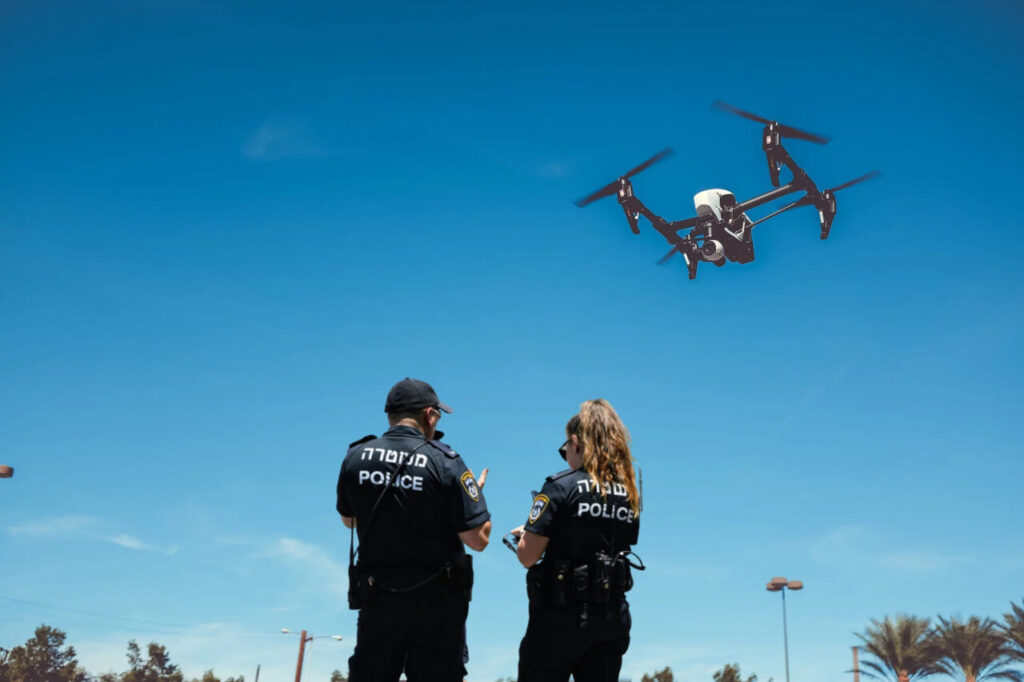
Most people have recently expressed concern about public safety. To ease these difficulties, the government can deploy aerial winged robots such as drones and quadcopters. The use of drones in the skies to safeguard the public from dangerous and unexpected threats is a novel method. These aerial aircraft may inspect public spaces and inform operators in advance of any potential risks. These procedures serve to lower the risk of injuries or the number of persons who are injured.
Advantages of Using Drones for Visual Inspection
| Advantages | Explanation |
|---|---|
| Detailed Inspection | The multispectral sensors aid in focusing on the important aspects and searching for errors, faults, or flaws. With the use of drones for industrial inspection, multiple checks for full examination of the same asset can be reduced. |
| Accurate Results | The onset of aerial and drone inspection has allowed accurate results to be effectively delivered. |
| Time-Critical Inspection Operations | Aerial inspection services have modernized and enhanced the prevalent and traditional visual inspection practices. As a result, UAV inspection has resulted in significant progressive developments in the inspection industries. |
| Reduced Cost of Aerial Inspection Services | Drones are cost-effective in the sense that they save time and resources. The cost of resources has been reduced because UAVs perform the majority of inspection tasks. |
Because of the creativity and advancement of UAVs, the abstraction of drones in place of the inspector’s sight is a hot topic of interest. Drone inspection has cleared the path for easy and quick mapping and surveying, which are the primary emphasis of inspection. Understanding the intrinsic value of aerial inspection, the inventiveness of using drones for industrial inspection has opened up the possibility of new methodologies and growing advancement. UAVs, sometimes known as quadcopters, come in a variety of shapes and sizes to suit various inspection applications, such as wind turbine inspection, oil and gas inspection, or even construction site inspection. Having said that, drones have numerous advantages and benefits that result in improved aerial inspection services.
Detailed Inspection
The utilisation of technical marvels such as drones and UAVs in visual assessment has shown to be highly respected. UAV inspection provides indisputable benefits and profits, including the ease with which activities can be carried out. Most essential, drones fly through the object or asset of interest to conduct a complete examination and document the specifics. The multispectral sensors aid in focusing on the important aspects and searching for errors, faults, or flaws. With the use of drones for industrial inspection, multiple checks for full examination of the same asset can be reduced.
Accurate Results
Quadcopters have been extensively used for aerial inspection services due to the prodigious nature of drones brought about by their multiple qualities. The development of Unmanned Aerial Vehicles, or UAVs, for use in visual inspection yields satisfying results that benefit the industry as a whole. Because of the immensity of these assets, skimming across building sites, agricultural farmlands, oil mines, power transmission lines, and marine ecosystems to gather and obtain findings has proven difficult. Having said that, the capacity to provide accurately calculated findings and measurements has long been eclipsed. Nonetheless, the introduction of aerial and drone inspection has enabled for the effective delivery of correct results.
Time-Critical Inspection Operations
The versatility of UAVs and quadcopters has highlighted the importance of swift and time-sensitive inspection. Aerial inspection services have modernized and enhanced the prevalent and traditional visual inspection practices. As a result, UAV inspection has resulted in significant progressive developments in the inspection industries. One of the most difficult obstacles is overcoming the pace of inspection. Drones and quadcopters strive to provide timely and accurate data. These winged devices’ quick aerial maneuverability aids in faster data capture and acquisition. This saves time and, as a result, money.
Reduced Cost of Aerial Inspection Services
Visual inspection is easily described as a time-consuming, labor-intensive activity. The resources consumed are expensive in terms of availability and price. Drones and UAVs provide an alternate source of intelligence in terms of inspection cost. Drones’ competent natural features enable aerial inspection to be accomplished expertly. UAV inspection collects data in a time-critical manner while maintaining precision and accuracy. Drones are cost-effective in the sense that they save time and resources. The cost of resources has been reduced because UAVs perform the majority of inspection tasks.
Conclusion
With their qualities and characteristics, drones attempt to build more effective visual inspection procedures. As a result, drones can proudly claim to be the most spectacular technical solution to the challenges of visual inspection.
Now that you know the major benefits of using drones for visual inspection, you might wonder how you can implement them in your next visual inspection project.
Aonic is here to help! We have a team of experience drone pilots that are able to assist you in working on all types of projects. You can even purchase a drone from us for your upcoming visual inspection project! Contact us today for a FREE demo!

